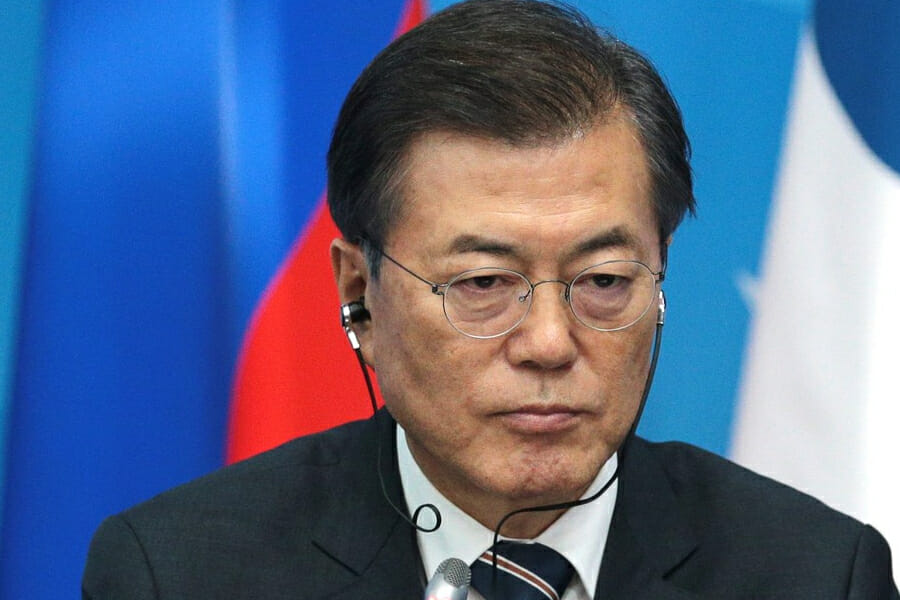
Culture
COVID-19 Cannot be an Excuse to Demonise and Stigmatise a Religious Minority
The terrible death toll wrought by the ongoing coronavirus pandemic has naturally hogged international headlines as of late.
But another facet of the tragedy – the dissemination of fake news – has not gone unnoticed.
The European Union has, in recent days, ratcheted up its efforts to counter disinformation during the still unfolding pandemic.
The European Commission launched a special website where people can fact check information, while the European External Action Service, the EU’s foreign policy body, has warned of the “proliferation of significant quantities of news, myths, and disinformation” about coronavirus.
Evidence of such proliferation is not confined to Europe, though, with concerns currently being raised about disinformation being spread on the other side of the world in South Korea about the Shincheonji Church. This religious movement dating back to the 1990s has its roots in Protestantism. It accounts for over 200,000 members, most of them coming from mainline fundamentalist churches which combat it for allegedly being “heretical.”
The pandemic, as the world now knows, originated in China but it quickly expanded to South Korea where Shincheonji Church was demonized for allegedly spreading the virus throughout the country.
The motive for this might, at first, appears unclear until you consider that South Korea is on the eve of legislative elections and the fear is that scapegoating the Shincheonji Church is an act of blatant political opportunism.
While South Korean authorities have, generally, been lauded for keeping the death toll caused by the disease to a manageable level, the country’s record on religious tolerance is rather less commendable.
A 30-page White Paper that reviews the management of the COVID-19 crisis by South Korean authorities has just been published in several languages by a scholar in religious studies, human rights activists, a lawyer, and a journalist, all from various European countries.
In February, South Korean media was enraged about the alleged role played by the Shincheonji Church in the acceleration of the spread of COVID-19.
The authors of the White Paper “de-construct” about 20 of what they insist are biased and false stories and, instead, present the facts.
Their report contains a whole list of “debunked myths” about the Shincheonji Church and COVID-19 in South Korea.
Shincheonji was accused of not being concerned about the epidemic and of delaying the closure of its religious services.
The fact is that on 25 January 2020, and again three days later, Shincheonji’s leadership issued orders that no Shincheonji members who had recently arrived from China could attend church services.
Another example is that it is claimed that sitting next to each other on the floor during religious services is unhygienic and more conducive to spreading bacteria and viruses.
But, says the report, it is simply not true to suggest that Shincheonji’s religious services are uniquely unhygienic because participants sit on the floor rather than on chairs or benches. In fact, this is common in many religions, such as mosques and Buddhist places of worship.
It has also been claimed (wrongly) that Shincheonji teaches its members to reject any medical treatment, which the White Paper denies.
So, why is the Shincheonji Church apparently being scapegoated during a global public health emergency?
Well, one clue is that legislative elections in South Korea are scheduled for 15 April and, as one would expect, politicians are currently embroiled in a competition for voters.
In this context, it is argued that members of the government and ruling coalition have found an easy way to thwart opposition candidates who heavily criticise their management of the health crisis: they scapegoat an unpopular movement and then use the media to strengthen this position.
According to several rights groups, including the respected Brussels-based NGO Human Rights Without Frontiers (HRWF), another factor is at play. Shincheonji has been targeted because it is a fast-growing movement that threatens their membership and many of the false stories and biased news have primarily been created and circulated by fundamentalist Protestant churches that now use them to call for the banning of Shincheonji.
The problem for Shincheonji is that, while those same fundamentalist churches may be regarded as conservative and anti-liberal, they represent a powerful majority in South Korea.
In the meantime, hundreds of Protestant churches across Korea went on holding services on the last Sundays of March in spite of government orders against large public gatherings.
No politician demonised those fundamentalist churches or called for them to be banned. Politically, this makes sense considering that the votes from the Protestant Churches, the majority religion in Korea, are vital for the political parties.
On 6 February 2020, the U.S. Commission for International Religious Freedom (USCIRF), an independent, bipartisan federal government entity, issued a declaration stating: “USCIRF is concerned by reports that Shincheonji Church members have been blamed for the spread of coronavirus. We urge the South Korean government to condemn scapegoating and to respect religious freedom as it responds to the outbreak.”
International rights organisations are now appealing to the South Korean authorities not to use COVID-19 as an excuse to violate the human rights and religious liberty of hundreds of thousands of believers.
Willy Fautré, director of Human Rights Without Frontiers, declared “COVID-19 cannot be an excuse to demonise and stigmatise a religious minority and its members.”

